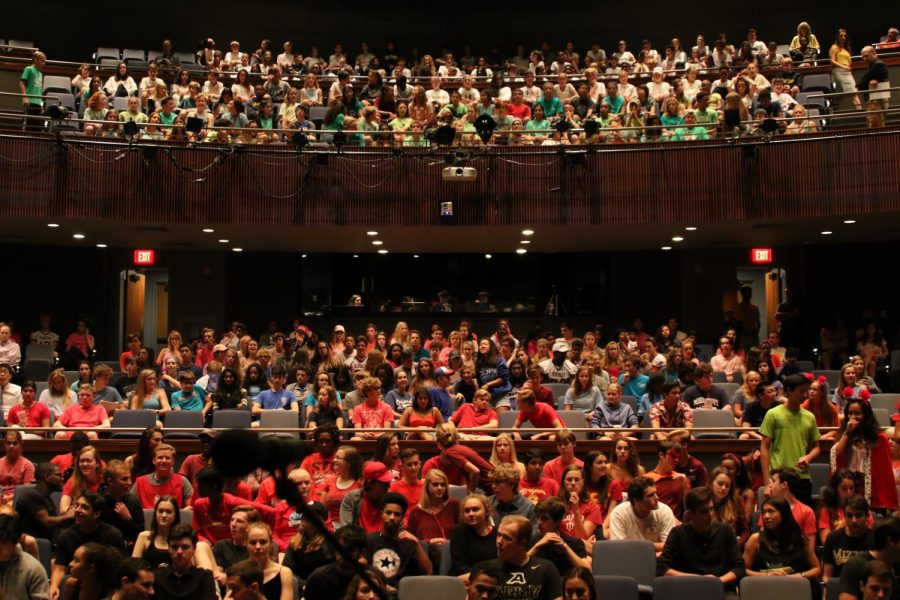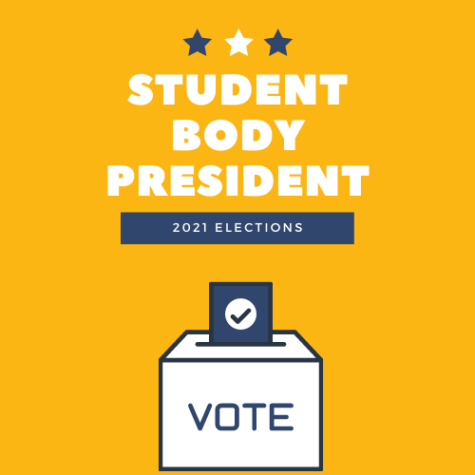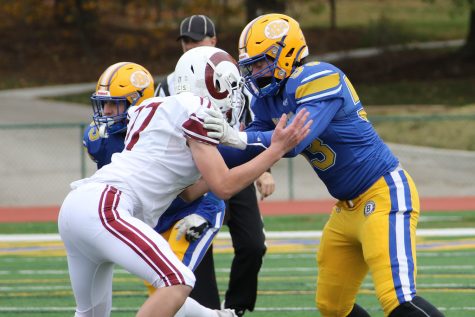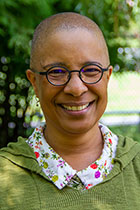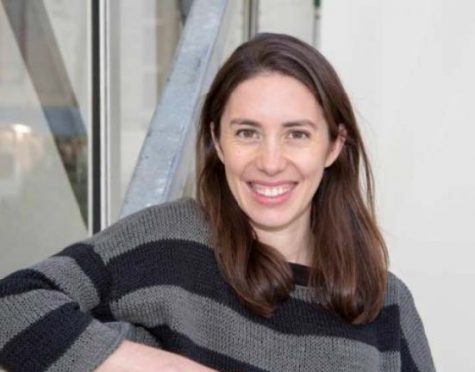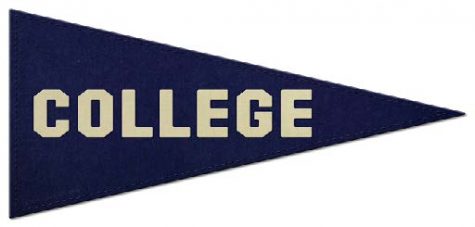Intellectual Freedom at JBS
February 20, 2018
Imagine a world without Roald Dahl’s captivating tale of a boy and his massive peach, or without Martin Handford’s series about an elusive man wearing a pair of round glasses, winter hat, and red and white striped shirt. That world is reality for some schools across the nation that censor library books. At Burroughs, those practices are countered with Banned Books Week, an event promoted by the Office for Intellectual Freedom. But what exactly does intellectual freedom encompass, and how does it play out in our own school community?
Intellectual freedom is the right of every individual to both seek and receive information from all points of view without restriction, according to the American Library Association. The Burroughs Statement of Philosophy echoes the value of intellectual freedom, stating, “We teach our students to question, to think for themselves, to imagine, to see, to solve problems, to understand subtleties and to appreciate ambiguity.”
The movement for intellectual freedom on campuses nationwide started over half a century ago, at the University of California, Berkeley. Gaining the support and participation of thousands of students, the Free Speech Movement won the right for on-campus political activities, as well as the acknowledgement of students’ rights to free speech and academic freedom. Inspired by civil disobedience tactics from the Civil Rights Movement, the Free Speech Movement became wildly successful by obtaining leverage to demand reforms from university administrators.
Since then, intellectual freedom has continued to be an important issue on campuses nationwide. Within the past year, the issue has received renewed interest, harkening back to the movement’s roots at UC Berkeley. In April of 2017, the university made national headlines when it canceled conservative commentator Ann Coulter’s scheduled appearance due to mounting concerns over violent protests. The birthplace of the Free Speech Movement now doubled back on its promises to present a diversity of viewpoints.
When asked whether controversial speakers should be given a platform at Burroughs, students overwhelmingly responded with the affirmative. Jack Case ‘18 declares, “Absolutely. Everyone deserves a spot to speak.” Mia Wood ‘23 agrees with the senior, adding, “Without differing facts and opinions, there would be no way to build on each others ideas because there wouldn’t be any other ideas.”
As the school’s mission statement outlines, Burroughs strives to present a diversity of viewpoints on the subjects it teaches. Libby Hizar ‘20 observes that Burroughs promotes that goal through the Current Events Club and its diversity program. She believes those programs teach students to speak their opinions in a way that is not one-sided, while also providing facts for the greater student population to individually interpret.
One instance sticks out in Wood’s mind when the school could have done a better job of promoting intellectual freedom. Historically, the Young Republicans Club brought in Republican politicians from Missouri, such as Anne Wagner and Catherine Hanaway, to speak in assembly. Some liberal-leaning students complained when those speakers were brought in, to the extreme of dismissing their speeches entirely. Though the speakers came and went before her time at Burroughs, she believes the school “needs more activities to teach students to listen respectfully to all points of view, agreeable or not.”
Case points to root of the problem: when a person is labeled “conservative” or “liberal,” “A person who identifies with the opposite party will automatically discount any opinion claimed by the other side. This is asinine and not a merited reaction.”
Intellectual freedom is itself an ambiguous issue, with many grey areas between free speech and hate speech. When asked about this blurry line, Wood quotes Justice Anthony Kennedy, who stated, “A law that can be directed against speech found offensive to some portion of the public can be turned against minority and dissenting views to the detriment of all. The First Amendment does not entrust that power to the government’s benevolence. Instead, our reliance must be on the substantial safeguards of free and open discussion in a democratic society.” Burroughs stands for a community of kindness and integrity that allows for such open discussion.
Due to its welcoming atmosphere, many students feel comfortable sharing their opinions on a variety of subjects. However, Nick Kime ‘18 acknowledges that not all students feel that way. He describes the liberal bias that is often associated with Burroughs students and the school itself, remarking that some of his conservative classmates feel the school does little to make those students feel as welcome as their liberal counterparts.
Hizar touches on a different point, hinting at the more competitive and combative undertones of the institution. “I feel very self conscious in general with sharing my opinions because I feel like if I say I support something, I am obligated to know absolutely everything about it. If I don’t have enough knowledge to support these beliefs I feel I will be seen [by myself] as less than.”
Burroughs is a school unlike many others. As students, we have access to a wider variety of source materials and news outlets than schools with less financial resources. But with that information comes responsibility, Wood believes. “Burroughs should always encourage expression within the student body of even the most controversial opinions. Because without controversy there would be no growth and opinions would never change.”
